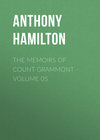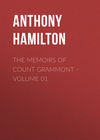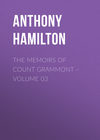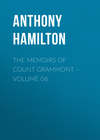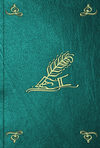Kitabı oku: «The Memoirs of Count Grammont», sayfa 12
“Your transports are so ridiculous that it is doing you a favour to attribute them to an excess of tenderness, which turns your head: a man, without doubt, must have a great inclination to be jealous, to entertain such an idea of the person you mention. Good God! what a lover to have caused uneasiness to a man of genius, and what a genius to have got the better of mine! Are not you ashamed to give any credit to the visions of a jealous fellow who brought nothing else with him from Italy? Is it possible that the story of the green stockings, upon which he has founded his suspicions, should have imposed upon you, accompanied as it is with such pitiful circumstances? Since he has made you his confidant, why did not he boast of breaking in pieces my poor harmless guitar? This exploit, perhaps, might have convinced you more than all the rest: recollect yourself, and if you are really in love with me, thank fortune for a groundless jealousy, which diverts to another quarter the attention he might pay to my attachment for the most amiable and the most dangerous man of the court.”
Hamilton was ready to weep for joy at these endearing marks of kindness, of which he thought himself so unworthy he was not satisfied with kissing, in raptures, every part of this billet; he also kissed several times her gloves and her fan. Play being over, Lady Chesterfield received them from his hands, and read in his eyes the joy that her billet had raised in his heart. Nor was he satisfied with expressing his raptures, only by looks: he hastened home, and wrote to her at least four times as much. How different was this letter from the other! Though perhaps not so well written; for one does not show so much wit in suing for pardon, as in venting reproaches, and it seldom happens that the soft languishing style of a love-letter is so penetrating as that of invective.
Be that as it may, his peace was made: their past quarrel gave new life to their correspondence; and Lady Chesterfield, to make him as easy as he had before been distrustful expressed on every occasion a feigned contempt for his rival, and a sincere aversion for her husband.
So great was his confidence in her, that he consented she should show in public some marks of attention to the duke, in order to conceal as much as possible their private intelligence. Thus, at this time nothing disturbed his peace of mind, but his impatience of finding a favourable opportunity for the completion of his desires: he thought it was in her power to command it; but she excused herself on account of several difficulties which she enumerated to him, and which she was desirous he should remove by his industry and attentions.
This silenced his complaints; but whilst he was endeavouring to surmount these obstacles, still wondering how it was possible that two persons who were so well disposed to each other, and who were agreed to make each other happy, could not put their designs in execution, accident discovered an unexpected adventure, which left him no room to doubt, either of the happiness of his rival, or of the perfidy of his mistress.
Misfortunes often fall light when most feared; and frequently prove heaviest when merited, and when least suspected. Hamilton was in the middle of the most tender and passionate letter he had ever written to Lady Chesterfield, when her husband came to announce to him the particulars of this last discovery: he came so suddenly upon him, that he had only just time to conceal his amorous epistle among his other papers. His heart and mind were still so full of what he was writing to his cousin, that her husband’s complaints against her, at first, were scarce attended to; besides, in his opinion, he had come in the most unfortunate moment on all accounts.
He was, however, obliged to listen to him, and he soon entertained quite different sentiments: he appeared almost petrified with astonishment, while the earl was relating to him circumstances of such an extravagant indiscretion, as seemed to him quite incredible, notwithstanding the particulars of the fact. “You have reason to be surprised at it,” said my lord, concluding his story; “but if you doubt the truth of what I tell you, it will be easy for you to find evidence that will convince you; for the scene of their tender familiarities was no less public than the room where the queen plays at cards, which while her majesty was at play, was, God knows, pretty well crowded. Lady Denham was the first who discovered what they thought would pass unperceived in the crowd; and you may very well judge hew secret she would keep such a circumstance. The truth is, she addressed herself to me first of all, as I entered the room, to tell me that I should give my wife a little advice, as other people might take notice of what I might see myself, if I pleased.
“Your cousin was at play, as I before told you: the duke was sitting next to her: I know not what was become of his hand; but I am sure that no one could see his arm below the elbow: I was standing behind them, just in the place that Lady Denham had quitted: the duke turning round perceived me, and was so much disturbed at my presence, that he almost undressed my lady in pulling away his hand. I know not whether they perceived that they were discovered; but of this I am convinced, that Lady Denham will take care that everybody shall know it. I must confess to you, that my embarrassment is so great, that I cannot find words to express what I now feel: I should not hesitate one moment what course to take, if I might be allowed to show my resentment against the person who has wronged me. As for her, I could manage her well enough, if, unworthy as she is of any consideration, I had not still some regard for an illustrious family, that would be distracted were I to resent such an injury as it deserves. In this particular you are interested yourself: you are my friend, and I make you my confidant in an affair of the greatest imaginable delicacy: let us then consult together what is proper to be done in so perplexing and disagreeable a situation.”
Hamilton, if possible, more astonished, and more confounded than himself, was far from being in a proper state to afford him advice on the present occasion: he listened to nothing but jealousy, and breathed nothing but revenge; but these emotions being somewhat abated, in hopes that there might be calumny, or at least exaggeration in the charges against Lady Chesterfield, he desired her husband to suspend his resolutions, until he was more fully informed of the fact; assuring him, however, that if he found the circumstances such as he had related, he should regard and consult no other interest than his.
Upon this they parted; and Hamilton found, on the first inquiry, that almost the whole court was informed of the adventure, to which every one added something in relating it. Vexation and resentment, inflamed his heart, and by degrees extinguished every remnant of his former passion.
He might easily have seen her, and have made her such reproaches as a man is generally inclined to do, on such occasions; but he was too much enraged to enter into any detail which might have led to an explanation: he considered himself as the only person essentially injured in this affair; for he could never bring his mind to think that the injuries of the husband could be placed in competition with those of the lover.
He hastened to Lord Chesterfield, in the transport of his passion, and told him that he had heard enough to induce him to give such advice, as he should follow himself in the same situation, and that if he wished to save a woman so strongly prepossessed, and who perhaps had not yet lost all her innocence, though she had totally lost her reason, he ought not to delay one single instant, but immediately to carry her into the country with the greatest possible expedition, without allowing her the least time to recover her surprise.
Lord Chesterfield readily agreed to follow this advice, which he had already considered as the only counsel a friend could give him; but his lady who did not suspect he had made this last discovery of her conduct, thought he was joking with her, when he told her to prepare for going into the country in two days: she was the more induced to think so as it was in the very middle of an extremely severe winter; but she soon perceived that he was in earnest: she knew from the air and manner of her husband that he thought he had sufficient reason to treat her in this imperious style; and finding all her relations serious and cold to her complaint, she had no hope left in this universally abandoned situation but in the tenderness of Hamilton. She imagined she should hear from him the cause of her misfortunes, of which she was still totally ignorant, and that his love would invent some means or other to prevent a journey, which she flattered herself would be even more affecting to him than to herself; but she was expecting pity from a crocodile.
At last, when she saw the eve of her departure was come, that every preparation was made for a long journey; that she was receiving farewell visits in form, and that still she heard nothing from Hamilton, both her hopes and her patience forsook her in this wretched situation. A few tears perhaps might have afforded her some relief, but she chose rather to deny herself that comfort, than to give her husband so much satisfaction. Hamilton’s conduct on this occasion appeared to her unaccountable; and as he still never came near her, she found means to convey to him the following billet.
“Is it possible that you should be one of those, who, without vouchsafing to tell me for what crime I am treated like a slave, suffer me to be dragged from society? What means your silence and indolence in a juncture wherein your tenderness ought most particularly to appear, and actively exert itself? I am upon the point of departing, and am ashamed to think that you are the cause of my looking upon it with horror, as I have reason to believe that you are less concerned at it than any other person: do, at least, let me know to what place I am to be dragged; what is to be done with me within a wilderness? and on what account you, like all the rest of the world, appear changed in your behaviour towards a person whom all the world could not oblige to change with regard to you, if your weakness or your ingratitude did not render you unworthy of her tenderness.”
This billet did but harden his heart, and make him more proud of his vengeance: he swallowed down full draughts of pleasure in beholding her reduced to despair, being persuaded that her grief and regret for her departure were on account of another person: he felt uncommon satisfaction in having a share in tormenting her, and was particularly pleased with the scheme he had contrived to separate her from a rival, upon the very point perhaps of being made happy. Thus fortified as he was against his natural tenderness, with all the severity of jealous resentment, he saw her depart with an indifference which he did not even endeavour to conceal from her: this unexpected treatment, joined to the complication of her other misfortunes, had almost in reality plunged her into despair.
The court was filled with the story of this adventure; nobody was ignorant of the occasion of this sudden departure, but very few approved of Lord Chesterfield’s conduct. In England they looked with astonishment upon a man who could be so uncivil as to be jealous of his wife; and in the city of London it was a prodigy, till that time unknown, to see a husband have recourse to violent means, to prevent what jealousy fears, and what it always deserves. They endeavoured, however, to excuse poor Lord Chesterfield, as far as they could safely do it, without incurring the public odium, by laying all the blame on his bad education. This made all the mothers vow to God that none of their sons should ever set a foot in Italy, lest they should bring back with them that infamous custom of laying restraint upon their wives.
CHAPTER NINTH. VARIOUS LOVE INTRIGUES AT THE ENGLISH COURT
Every man who believes that his honour depends upon that of his wife is a fool who torments himself, and drives her to despair; but he who, being naturally jealous, has the additional misfortune of loving his wife, and who expects that she should only live for him; is a perfect madman, whom the torments of hell have actually taken hold of in this world, and whom nobody pities. All reasoning and observation on these unfortunate circumstances attending wedlock concur in this, that precaution is vain and useless before the evil, and revenge odious afterwards.
The Spaniards, who tyrannise over their wives, more by custom than from jealousy, content themselves with preserving the niceness of their honour by duennas, grates, and locks.
The Italians, who are wary in their suspicions, and vindictive in their resentments, pursue a different line of conduct: some satisfy themselves with keeping their wives under locks which they think secure: others by ingenious precautions exceed whatever the Spaniards can invent for confining the fair sex but the generality are of opinion, that in either unavoidable danger or in manifest transgression, the surest way is to assassinate.
But, ye courteous and indulgent nations, who, far from admitting these savage and barbarous customs, give full liberty to your dear ribs, and commit the care of their virtue to their own discretion, you pass without alarms or strife your peaceful days, in all the enjoyments of domestic indolence!
It was certainly some evil genius that induced Lord Chesterfield to distinguish himself from his patient and good-natured countrymen, and ridiculously to afford the world an opportunity of examining into the particulars of an adventure which would perhaps never have been known without the verge of the court, and which would everywhere have been forgotten in less than a month; but now, as soon as ever he had turned his back, in order to march away with his prisoner, and the ornaments she was supposed to have bestowed upon him, God only knows what a terrible attack there was made upon his rear: Rochester, Middlesex, Sedley, Etheredge, and all the whole band of wits, exposed him in numberless ballads, and diverted the public at his expense.
The Chevalier de Grammont was highly pleased with these lively and humorous compositions; and wherever this subject was mentioned, never failed to produce his supplement upon the occasion: “It is strange,” said he, “that the country, which is little better than a gallows or a grave for young people, is allotted in this land only for the unfortunate, and not for the guilty! poor Lady Chesterfield, for some unguarded looks, is immediately seized upon by an angry husband, who will oblige her to spend her Christmas at a country-house, a hundred and fifty miles from London; while here there are a thousand ladies who are left at liberty to do whatever they please, and who indulge in that liberty, and whose conduct, in short, deserves a daily bastinado. I name no person, God forbid I should; but Lady Middleton, Lady Denham, the queen’s and the duchess’s maids of honour, and a hundred others, bestow their favours to the right and to the left, and not the least notice is taken of their conduct. As for Lady Shrewsbury, she is conspicuous. I would take a wager she might have a man killed for her every day, find she would only hold her head the higher for it: one would suppose she imported from Rome plenary indulgences for her conduct: there are three or four gentlemen who wear an ounce of her hair made into bracelets, and no person finds any fault; and yet shall such a cross-grained fool as Chesterfield be permitted to exercise an act of tyranny, altogether unknown in this country, upon the prettiest woman in England, and all for a mere trifle: but I am his humble servant; his precautions will avail him nothing; on the contrary, very often a woman, who had no bad intentions when she was suffered to remain in tranquillity, is prompted to such conduct by revenge, or reduced to it by necessity: this is as true as the gospel: hear now what Francisco’s saraband says on the subject:
“Tell me, jealous-paced swain, What avail thy idle arts, To divide united hearts? Love, like the wind, I trow, Will, where it listeth, blow; So, prithee, peace, for all thy cares are vain. “When you are by, Nor wishful look, be sure, nor eloquent sigh, Shall dare those inward fires discover, Which burn in either lover Yet Argus’ self, if Argus were thy spy, Should ne’er, with all his mob of eyes, Surprise. “Some joys forbidden, Transports hidden, Which love, through dark and secret ways, Mysterious love, to kindred souls conveys.”
The Chevalier de Grammont passed for the author of this sonnet: neither the justness of the sentiment, nor turn of it, are surprisingly beautiful; but as it contained some truths that flattered the genius of the nation, and pleased those who interested themselves for the fair sex, the ladies were all desirous of having it to teach their children.
During all this time the Duke of York, not being in the way of seeing Lady Chesterfield, easily forgot her: her absence, however, had some circumstances attending it which could not but sensibly affect the person who had occasioned her confinement; but there are certain fortunate tempers to which every situation is easy; they feel neither disappointment with bitterness, nor pleasure with acuteness. In the mean time, as the duke could not remain idle, he had no sooner forgotten Lady Chesterfield, but he began to think of her whom he had been in love with before, and was upon the point of relapsing into his old passion for Miss Hamilton.
There was in London a celebrated portrait-painter called Lely, who had greatly improved himself by studying the famous Vandyke’s pictures, which were dispersed all over England in abundance. Lely imitated Vandyke’s manner, and approached the nearest to him of all the moderns. The Duchess of York, being desirous of having the portraits of the handsomest persons at court, Lely painted them, and employed all his skill in the performance; nor could he ever exert himself upon more beautiful subjects. Every picture appeared a master-piece; and that of Miss Hamilton appeared the highest finished: Lely himself acknowledged that he had drawn it with a particular pleasure. The Duke of York took a delight in looking at it, and began again to ogle the original: he had very little reason to hope for success; and at the same time that his hopeless passion alarmed the Chevalier de Grammont, Lady Denham thought proper to renew the negotiation which had so unluckily been interrupted: it was soon brought to a conclusion; for where both parties are sincere in a negotiation, no time is lost in cavilling. Everything succeeded prosperously on one side; yet, I know not what fatality obstructed the pretensions of the other. The duke was very urgent with the duchess to put Lady Denham in possession of the place which was the object of her ambition; but as she was not guarantee for the performance of the secret articles of the treaty, though till this time she had borne with patience the inconstancy of the duke, and yielded submissively to his desires; yet, in the present instance, it appeared hard and dishonourable to her, to entertain near her person, a rival, who would expose her to the danger of acting but a second part in the midst of her own court. However, she saw herself upon the point of being forced to it by authority, when a far more unfortunate obstacle for ever bereft poor Lady Denham of the hopes of possessing that fatal place, which she had solicited with such eagerness.
Old Denham, naturally jealous, became more and more suspicious, and found that he had sufficient ground for such conduct: his wife was young and handsome, he old and disagreeable: what reason then had he to flatter himself that Heaven would exempt him from the fate of husbands in the like circumstances? This he was continually saying to himself; but when compliments were poured in upon him from all sides, upon the place his lady was going to have near the duchess’s person, he formed ideas of what was sufficient to have made him hang himself, if he had possessed the resolution. The traitor chose rather to exercise his courage against another. He wanted precedents for putting in practice his resentments in a privileged country: that of Lord Chesterfield was not sufficiently bitter for the revenge he meditated: besides, he had no country-house to which he could carry his unfortunate wife. This being the case, the old villain made her travel a much longer journey without stirring out of London. Merciless fate robbed her of life, and of her dearest hopes, in the bloom of youth.
As no person entertained any doubt of his having poisoned her, the populace of his neighbourhood had a design of tearing him in pieces, as soon as he should come abroad; but he shut himself up to bewail her death, until their fury was appeased by a magnificent funeral, at which he distributed four times more burnt wine than had ever been drunk at any burial in England.
[The lampoons of the day, some of which are to be found in Andrew Marvell’s Works, more than insinuate that she was deprived of life by a mixture infused into some chocolate. The slander of the times imputed her death to the jealousy of the Duchess of York.]
While the town was in fear of some great disaster, as an expiation for these fatal effects of jealousy, Hamilton was not altogether so easy as he flattered himself he should be after the departure of Lady Chesterfield: he had only consulted the dictates of revenge in what he had done. His vengeance was satisfied; but such was far from being the case with his love; and having, since the absence of her he still admired, notwithstanding his resentments, leisure to make those reflections which a recent injury will not permit a man to attend to: “And wherefore,” said he to himself, “was I so eager to make her miserable, who alone, however culpable she may be, has it in her power to make me happy? Cursed jealousy!” continued he, “yet more cruel to those who torment than to those who are tormented! What have I gained by having blasted the hopes of a more happy rival, since I was not able to perform this without depriving myself, at the same time, of her upon whom the whole happiness and comfort of my life was centred.”
Thus, clearly proving to himself, by a great many reasonings of the same kind, and all out of season, that in such an engagement it was much better to partake with another than to have nothing at all, he filled his mind with a number of vain regrets and unprofitable remorse, when he received a letter from her who occasioned them, but a letter so exactly adapted to increase them, that, after he had read it, he looked upon himself as the greatest scoundrel in the world. Here it follows:
“You will, no doubt, be as much surprised at this letter as I was at the unconcerned air with which you beheld my departure. I am led to believe that you had imagined reasons which, in your own mind, justified such unseasonable conduct. If you are still under the impression of such barbarous sentiments it will afford you pleasure to be made acquainted with what I suffer in the most horrible of prisons. Whatever the country affords most melancholy in this season presents itself to my view on all sides: surrounded by impassable roads, out of one window I see nothing but rocks, out of another nothing but precipices; but wherever I turn my eyes within doors I meet those of a jealous husband, still more insupportable than the sad objects that encompass me. I should add to the misfortunes of my life that of seeming criminal in the eyes of a man who ought to have justified me, even against convincing appearances, if by my avowed innocence I had a right to complain or to expostulate: but how is it possible for me to justify myself at such a distance; and how can I flatter myself that the description of a most dreadful prison will not prevent you from believing me? But do you deserve that I should wish you did? Heavens! how I must hate you, if I did not love you to distraction. Come, therefore, and let me once again see you, that you may hear my justification; and I am convinced that if after this visit you find me guilty it will not be with respect to yourself. Our Argus sets out to-morrow for Chester, where a law-suit will detain him a week. I know not whether he will gain it; but I am sure it will be entirely your fault if he does not lose one, for which he is at least as anxious as that he is now going after.”
This letter was sufficient to make a man run blindfold into an adventure still more rash than that which was proposed to him, and that was rash enough in all respects: he could not perceive by what means she could justify herself; but as she assured him he should be satisfied with his journey, this was all he desired at present.
There was one of his relations with Lady Chesterfield, who, having accompanied her in her exile, had gained some share in their mutual confidence; and it was through her means he received this letter, with all the necessary instructions about his journey and his arrival. Secrecy being the soul of such expeditions, especially before an amour is accomplished, he took post, and set out in the night, animated by the most tender and flattering wishes, so that, in less than no time almost, in comparison with the distance and the badness of the roads, he had travelled a hundred and fifty tedious miles at the last stage he prudently dismissed the post-boy. It was not yet daylight, and therefore, for fear of the rocks and precipices mentioned in her letter, he proceeded with tolerable discretion, considering he was in love.
By this means he fortunately escaped all the dangerous places, and, according to his instructions, alighted at a little hut adjoining to the park wall. The place was not magnificent; but, as he only wanted rest, it did well enough for that: he did not wish for daylight, and was even still less desirous of being seen; wherefore, having shut himself up in this obscure retreat, he fell into a profound sleep, and did not wake until noon. As he was particularly hungry when he awoke, he ate and drank heartily: and, as he was the neatest man at court, and was expected by the neatest lady in England, he spent the remainder of the day in dressing himself, and in making all those preparations which the time and place permitted, without deigning once to look around him, or to ask his landlord a single question. At last the orders he expected with great impatience were brought him, in the beginning of the evening, by a servant, who, attending him as a guide, after having led him for about half an hour in the dirt, through a park of vast extent, brought him at last into a garden, into which a little door opened: he was posted exactly opposite to this door, by which, in a short time, he was to be introduced to a more agreeable situation; and here his conductor left him. The night advanced, but the door never opened.
Though the winter was almost over, the cold weather seemed only to be beginning: he was dirtied up to his knees in mud, and soon perceived that if he continued much longer in this garden it would all be frozen. This beginning of a very dark and bitter night would have been unbearable to any other; but it was nothing to a man who flattered himself to pass the remainder of it in the height of bliss. However, he began to wonder at so many precautions in the absence of a husband his imagination, by a thousand delicious and tender ideas supported him some time against the torments of impatience and the inclemency of the weather; but he felt his imagination, notwithstanding, cooling by degrees; and two hours, which seemed to him as tedious as two whole ages, having passed, and not the least notice being taken of him, either from the door or from the window, he began to reason with himself upon the posture of his affairs, and what was the fittest conduct for him to pursue in this emergency: “What if I should rap at this cursed door,” said he; “for if my fate requires that I should perish, it is at least more honourable to die in the house than to be starved to death in the garden but then,” continued he, “I may, thereby, perhaps, expose a person whom some unforeseen accident may, at this very instant, have reduced to greater perplexity than even I myself am in.” This thought supplied him with a necessary degree of patience and fortitude against the enemies he had to contend with; he therefore began to walk quickly to and fro, with resolution to wait, as long as he could keep alive, the end of an adventure which had such an uncomfortable beginning. All this was to no purpose; for though he used every effort to keep himself warm, and though muffled up in a thick cloak, yet he began to be benumbed in all his limbs, and the cold gained the ascendancy over all his amorous vivacity and eagerness. Daybreak was not far off, and judging now that, though the accursed door should even be opened, it would be to no purpose, he returned, as well as he could, to the place from whence he had set out upon this wonderful expedition.
All the faggots that were in the cottage were hardly able to unfreeze him: the more he reflected on his adventure, the circumstances attending it appeared still the more strange and unaccountable; but so far from accusing the charming countess, he suffered a thousand different anxieties on her account. Sometimes he imagined that her husband might have returned unexpectedly; sometimes, that she might suddenly have been taken ill; in short, that some insuperable obstacle had unluckily interposed, and prevented his happiness, notwithstanding his mistress’s kind intentions towards him. “But wherefore,” said he, “did she forget me in that cursed garden? Is it possible that she could not find a single moment to make me at least, some sign or other, if she could neither speak to me nor give me admittance?” He knew not which of these conjectures to rely upon, or how to answer his own questions; but as he flattered himself that everything would succeed better the next night, after having vowed not to set a foot again into that unfortunate garden, he gave orders to be awakened as soon as any person should inquire for him: then he laid himself down in one of the worst beds in the world, and slept as sound as if he had been in the best: he supposed that he should not be awakened, but either by a letter or a message from Lady Chesterfield; but he had scarce slept two hours when he was roused by the sound of the horn and the cry of the hounds. The but which afforded him a retreat, joining, as we before said, to the park wall, he called his host, to know what was the occasion of that hunting, which made a noise as if the whole pack of hounds had been in his bed-chamber. He was told that it was my lord hunting a hare in his park. “What lord?” said he, in great surprise. “The Earl of Chesterfield,” replied the pea sant. He was so astonished at this that at first he hid his head under the bed-clothes, under the idea that he already saw him entering with all his bounds; but as soon as he had a little recovered himself he began to curse capricious fortune, no longer doubting but this jealous fool’s return had occasioned all his tribulations in the preceding night.



